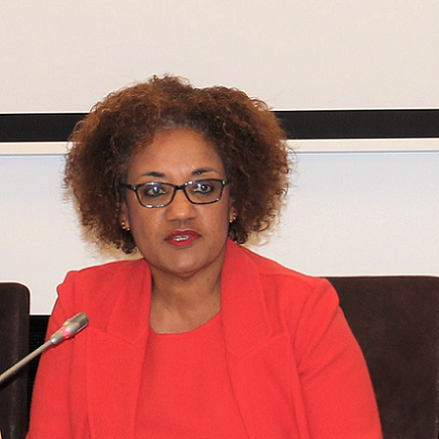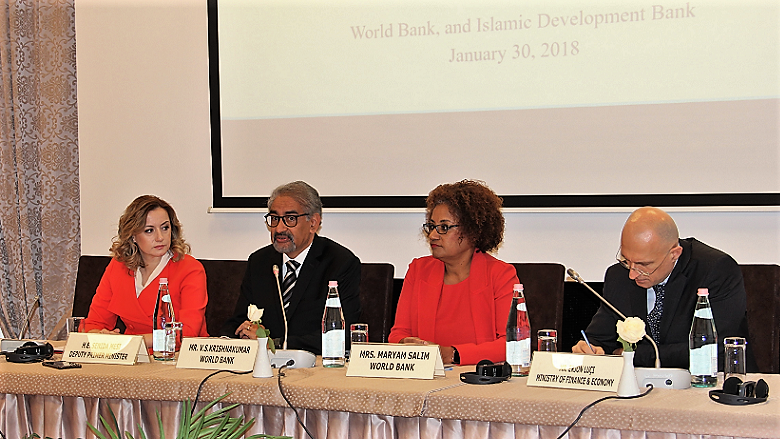Honorable Deputy Prime Minister Ms. Mesi,
Honorable Deputy Minister of Finance and Economy, Mr. Luçi,
Distinguished representatives of Government, Ministries and Agencies, Development Partners,
Ladies and Gentlemen,
I am delighted to join you today at this important event where the World Bank team will present key findings and recommendations of the Albania Country Procurement and Contract Implementation (CPCI) Review. We are pleased that the Islamic Development Bank partnered with the World Bank in conducting the review. Other development partners such as the EU, SIGMA, EBRD and Switzerland engaged closely with our team.
As more than 40 percent of Albania capital expenditures are still foreign financed, we recognize that an area requiring deeper review and analysis pertains to procurement and contract implementation.
We value that Government efforts taken to align the public procurement system with EU procurement directives. These efforts led to a public procurement system guided by the principles of transparency, open competition, efficiency and fairness.
Albania is the first country in the region to pilot e-procurement for the World Bank financed projects with the first contract procured through the e-procurement system in 2012. The e-procurement system has been certified by the World Bank for the use of International Competitive Bidding (ICB) and National Competitive Bidding (NCB). The pilot has given positive results and it has also been used other donor-funded projects (such as EIB and EBRD).
While there are legislative and institutional reform gains, a range of issues continue to be encountered during actual implementation. A core concern is the time taken to close a procurement process especially for large value civil works contracts financed by international financial institutions. For example, the procurement cycle for Bank-financed projects from advertisement to issuing the notice to handing over the project site to the contractor takes about 1.5 times more than the relevant benchmark. This delays project implementation and thus delays delivery of results to the citizens.

Hence, this CPCI review was a long overdue task.
The team conducted extensive review using data provided by implementing agencies to focus, among others, on procurement planning, organizational structure, efficiency and performance, transparency, contract management and execution, and quality of bidding and contract documents and bid evaluations. The high number of unpublished negotiated contracts, and perceived lack of trust in the complaints review mechanism at the time of the review were additional areas the team looked at.
The team also reviewed the current procurement arrangements under Bank and IsDB financed projects to assess how these can be improved, including possible piloting of procurement arrangements in WB financed projects.
We recognize that timely, effective and efficient implementation of development financing is a high priority for Government as it pursues wide range of reforms. The quality and efficiency of procurement processes play a key role in accomplishing results. As you know, the bulk of investment financing is linked to contracts implementation.
While the team was finalizing the CPCI report, the World Bank provided a financial technical assistance to the Government to support increased compliance monitoring, efficiency and transparency in public procurement.
Finally, the CPCI review would not be completed without the support of all agencies, government officials, private sector and donors who devoted time to meet with the team. We will continue our support to the Government to address the key recommendations of the CPCI report to enhance procurement and contract implementation as well as establishing more effective performance-tracking systems.
I am sure you will have a fruitful discussion during the workshop and I am looking forward for improved project implementation and service delivery to the citizens of Albania in the future.

